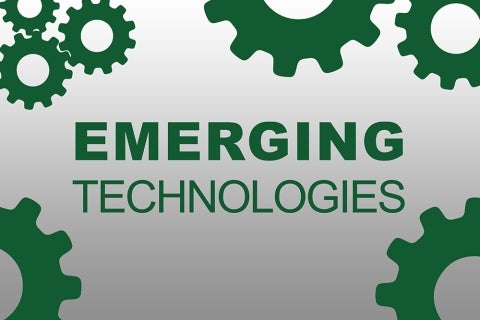Note: Yale School of the Environment (YSE) was formerly known as the Yale School of Forestry & Environmental Studies (F&ES). News articles and events posted prior to July 1, 2020 refer to the School's name at that time.
Although many new technologies offer the promise to improve human welfare, they can also produce unintended environmental consequences. And while applying the principles of life cycle assessment (LCA) early in technology development can provide important insights about how to avoid damage to the environment, existing methods focus on products or processes that are already commercially established.

Meanwhile, the procedures and tools used to assess emerging technologies tend to be applied on an ad hoc basis, with no clear guidelines as to what methods are available, applicable or appropriate.
A new special issue of Yale’s
Journal of Industrial Ecology addresses this gap with cutting edge research that advances methods, tests new approaches against emerging technologies, and assesses novel technologies for transportation, infrastructure, energy, and materials. The special issue, “
Life Cycle Assessment for Emerging Technologies,” includes findings with far-reaching implications for technology developers and policy makers.
For example, two papers reveal the potential
environmental consequences of the rapid increase in production of the lithium-ion battery packs that power everything from electric cars to portable computing devices. In contrast to earlier analyses, these studies show that, on a global scale,
expansion of lithium production is likely to continue without being slowed by resource constraints for up to three more decades. Meanwhile, localized environmental impacts associated with extraction and processing of high-grade lithium ion brines are likely to create geographic imbalances in the environmental impacts and benefits of that expansion.
The issue also includes papers on fresh approaches to comparative assessment of emerging energy technologies. These new analyses make clear that the age of single-technology solutions at massive, industrial scales is coming to a close. The papers here examine environmental impact of alternative energy futures for
algae-derived fuels,
hydrogen,
solar, and
off-shore wind energy technologies.
“The research in this issue advances not only the understanding and methods for the environmental assessment of novel technologies, italso shows the potential for refashioning the tools of systematic environmental assessment to apply at the earliest stages of the innovation cycle,” said
Reid Lifset, editor-in-chief of the
Journal of Industrial Ecology.
Another innovation is the creation of
LCA inventories (databases) that can be aligned with the scenarios used in the integrated assessment models (IAMs) widely used in climate change modeling. Methods to incorporate technology readiness levels (TRLs) that are used in R&D management allow connection of LCA with other complementary tools such as multicriteria decision analysis, risk analysis, techno-economic analysis, and the development of data repositories for emerging materials, processes, and technologies.
The
Journal of Industrial Ecology is a peer-reviewed international scientific journal owned by Yale University and co-edited with the Norwegian University of Science and Technology and Tsinghua University. It is headquartered in the Center for Industrial Ecology at the Yale School of Forestry & Environmental Studies.
The special issue was edited by Joule Bergerson (University of Calgary), Stefano Cucurachi (Leiden University), and Thomas Seager (Arizona State University). A grant from the Alfred P. Sloan Foundation provided partial support for the special issue including funds for open access publication of four of the articles in the issue.
